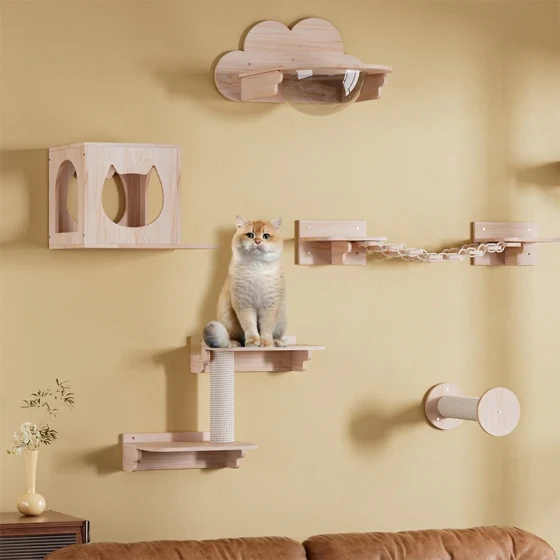How to Train Folded Ear Cats

1. Adapt to family life at a young age
Folded ear cats should receive their owner's affection starting from two weeks old, several times a day, for a few minutes each time, gradually increasing the duration and frequency of the affection. While petting, gently talk to the cat. If possible, ask friends or relatives to also pet the cat, or the owner can disguise themselves with a hat, sunglasses, etc., so the cat adapts to different images. During this period, the cat will be weaned and start eating solid food. They will gradually begin to explore their surroundings, increase playtime, show a strong curiosity, and their movements become more coordinated. Owners should seize this opportunity to allow the cat to gain ample life experience and reduce fear of unfamiliar things by gradually introducing household items that make noise, such as vacuum cleaners, washing machines, and doorbells, helping them adapt to the home environment. Dog barking and car horn sounds should also be frequently exposed to them.
2. Do not be too proactive, cats are independent animals. When making friends with a cat, do not be too proactive. If your cat missed the best
Scottish Fold cat socialization period or had unpleasant experiences leaving psychological shadows, it can easily start to dislike you. You should only approach the cat when it is very relaxed. You can softly talk to it while it is eating to let the cat understand your goodwill. The above-mentioned petting method is also effective, but do not be eager to touch it, never be loud or move too violently, which can scare the cat. A patient and gentle attitude will surely win the cat’s favor and trust.
3. Teach according to individual traits. Each cat has a different personality, preferences, and living habits. Some cats are lively and active, liking to explore the home; some are obedient and affectionate, liking to cuddle in their owner's arms; and some prefer to be solitary… Different cats are fascinated by different toys. Understanding the unique traits of your cat allows you to arrange daily activities purposefully, and the process of getting to know your cat is very enjoyable for the owner.
4. Punishment is ineffective. Cats are inherently proud, and punishment has little effect in raising a good cat. Punishing after the fact is even more harmful because cats do not associate previous misbehavior with later punishment, and instead become confused by the owner's attitude. Arbitrary beating or scolding damages the cat’s feelings and trust toward the owner. Therefore, when the cat does something wrong, a timely "No!" can let it understand what the owner dislikes. When the cat hears a loud voice, it may stare at you with big round eyes or quickly run away. At that moment, never chase or grab it. Otherwise, the cat will be confused and regard you as an enemy, avoiding you.





